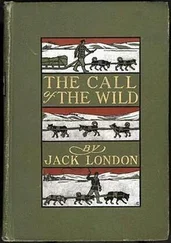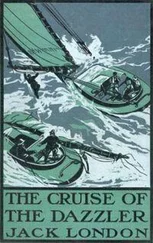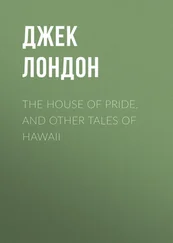Jack London - The House of Pride
Здесь есть возможность читать онлайн «Jack London - The House of Pride» весь текст электронной книги совершенно бесплатно (целиком полную версию без сокращений). В некоторых случаях можно слушать аудио, скачать через торрент в формате fb2 и присутствует краткое содержание. Жанр: Классическая проза, на английском языке. Описание произведения, (предисловие) а так же отзывы посетителей доступны на портале библиотеки ЛибКат.
- Название:The House of Pride
- Автор:
- Жанр:
- Год:неизвестен
- ISBN:нет данных
- Рейтинг книги:3 / 5. Голосов: 1
-
Избранное:Добавить в избранное
- Отзывы:
-
Ваша оценка:
- 60
- 1
- 2
- 3
- 4
- 5
The House of Pride: краткое содержание, описание и аннотация
Предлагаем к чтению аннотацию, описание, краткое содержание или предисловие (зависит от того, что написал сам автор книги «The House of Pride»). Если вы не нашли необходимую информацию о книге — напишите в комментариях, мы постараемся отыскать её.
The House of Pride — читать онлайн бесплатно полную книгу (весь текст) целиком
Ниже представлен текст книги, разбитый по страницам. Система сохранения места последней прочитанной страницы, позволяет с удобством читать онлайн бесплатно книгу «The House of Pride», без необходимости каждый раз заново искать на чём Вы остановились. Поставьте закладку, и сможете в любой момент перейти на страницу, на которой закончили чтение.
Интервал:
Закладка:
In my fitful school-days I had written the usual compositions, which had been praised in the usual way, and while working in the jute mills I still made an occasional try. The factory occupied thirteen hours of my day, and being young and husky, I wanted a little time for myself, so there was little left for composition. The San Francisco Call offered a prize for a descriptive article. My mother urged me to try for it, and I did, taking for my subject “Typhoon off the Coast of Japan.” Very tired and sleepy, knowing I had to be up at half-past five, I began the article at midnight and worked straight on until I had written two thousand words, the limit of the article, but with my idea only half worked out. The next night, under the same conditions, I continued, adding another two thousand words before I finished, and then the third night I spent in cutting out the excess, so as to bring the article within the conditions of the contest. The first prize came to me, and the second and third went to students of the Stanford and Berkeley Universities.
My success in the San Francisco Call competition seriously turned my thoughts to writing, but my blood was still too hot for a settled routine, so I practically deferred literature, beyond writing a little gush for the Call , which that journal promptly rejected.
I tramped all through the United States, from California to Boston, and up and down, returning to the Pacific coast by way of Canada, where I got into jail and served a term for vagrancy, and the whole tramping experience made me become a Socialist. Previously I had been impressed by the dignity of labour, and, without having read Carlyle or Kipling, I had formulated a gospel of work which put theirs in the shade. Work was everything. It was sanctification and salvation. The pride I took in a hard day’s work well done would be inconceivable to you. I was as faithful a wage-slave as ever a capitalist exploited. In short, my joyous individualism was dominated by the orthodox bourgeois ethics. I had fought my way from the open west, where men bucked big and the job hunted the man, to the congested labour centres of the eastern states, where men were small potatoes and hunted the job for all they were worth, and I found myself looking upon life from a new and totally different angle. I saw the workers in the shambles at the bottom of the Social Pit. I swore I would never again do a hard day’s work with my body except where absolutely compelled to, and I have been busy ever since running away from hard bodily labour.
In my nineteenth year I returned to Oakland and started at the High School, which ran the usual school magazine. This publication was a weekly-no, I guess a monthly-one, and I wrote stories for it, very little imaginary, just recitals of my sea and tramping experiences. I remained there a year, doing janitor work as a means of livelihood, and leaving eventually because the strain was more than I could bear. At this time my socialistic utterances had attracted considerable attention, and I was known as the “Boy Socialist,” a distinction that brought about my arrest for street-talking. After leaving the High School, in three months cramming by myself, I took the three years’ work for that time and entered the University of California. I hated to give up the hope of a University education and worked in a laundry and with my pen to help me keep on. This was the only time I worked because I loved it, but the task was too much, and when half-way through my Freshman year I had to quit.
I worked away ironing shirts and other things in the laundry, and wrote in all my spare time. I tried to keep on at both, but often fell asleep with the pen in my hand. Then I left the laundry and wrote all the time, and lived and dreamed again. After three months’ trial I gave up writing, having decided that I was a failure, and left for the Klondike to prospect for gold. At the end of the year, owing to the outbreak of scurvy, I was compelled to come out, and on the homeward journey of 1,900 miles in an open boat made the only notes of the trip. It was in the Klondike I found myself. There nobody talks. Everybody thinks. You get your true perspective. I got mine.
While I was in the Klondike my father died, and the burden of the family fell on my shoulders. Times were bad in California, and I could get no work. While trying for it I wrote “Down the River,” which was rejected. During the wait for this rejection I wrote a twenty-thousand word serial for a news company, which was also rejected. Pending each rejection I still kept on writing fresh stuff. I did not know what an editor looked like. I did not know a soul who had ever published anything. Finally a story was accepted by a Californian magazine, for which I received five dollars. Soon afterwards “The Black Cat” offered me forty dollars for a story.
Then things took a turn, and I shall probably not have to shovel coal for a living for some time to come, although I have done it, and could do it again.
My first book was published in 1900. I could have made a good deal at newspaper work; but I had sufficient sense to refuse to be a slave to that man-killing machine, for such I held a newspaper to be to a young man in his forming period. Not until I was well on my feet as a magazine-writer did I do much work for newspapers. I am a believer in regular work, and never wait for an inspiration. Temperamentally I am not only careless and irregular, but melancholy; still I have fought both down. The discipline I had as a sailor had full effect on me. Perhaps my old sea days are also responsible for the regularity and limitations of my sleep. Five and a half hours is the precise average I allow myself, and no circumstance has yet arisen in my life that could keep me awake when the time comes to “turn in.”
I am very fond of sport, and delight in boxing, fencing, swimming, riding, yachting, and even kite-flying. Although primarily of the city, I like to be near it rather than in it. The country, though, is the best, the only natural life. In my grown-up years the writers who have influenced me most are Karl Marx in a particular, and Spencer in a general, way. In the days of my barren boyhood, if I had had a chance, I would have gone in for music; now, in what are more genuinely the days of my youth, if I had a million or two I would devote myself to writing poetry and pamphlets. I think the best work I have done is in the “League of the Old Men,” and parts of “The Kempton-Wace Letters.” Other people don’t like the former. They prefer brighter and more cheerful things. Perhaps I shall feel like that, too, when the days of my youth are behind me.
[1]Malahini-new-comer.
Интервал:
Закладка:
Похожие книги на «The House of Pride»
Представляем Вашему вниманию похожие книги на «The House of Pride» списком для выбора. Мы отобрали схожую по названию и смыслу литературу в надежде предоставить читателям больше вариантов отыскать новые, интересные, ещё непрочитанные произведения.
Обсуждение, отзывы о книге «The House of Pride» и просто собственные мнения читателей. Оставьте ваши комментарии, напишите, что Вы думаете о произведении, его смысле или главных героях. Укажите что конкретно понравилось, а что нет, и почему Вы так считаете.








